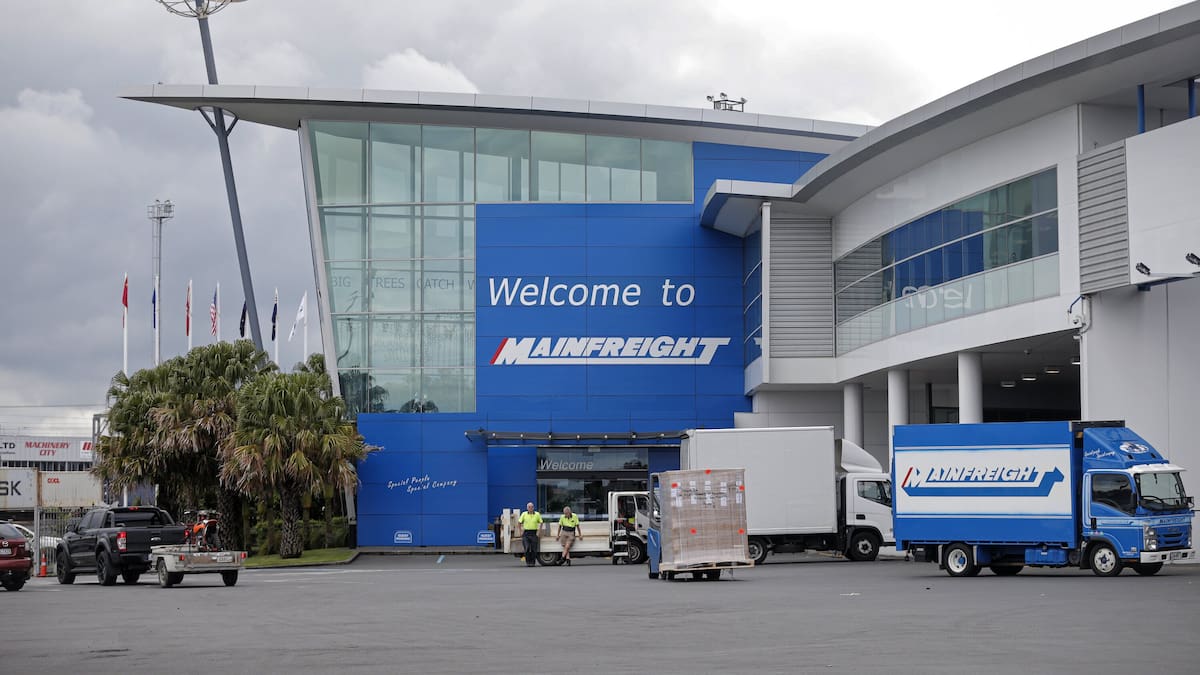“There’s a lot of weakness across the NZX board on a day where a lot of people are away on school holidays,” he said.
Ups and downs
Among the day’s 94 decliners was Mainfreight, which has direct exposure to Trump’s tariffs due to its air and ocean supply chain, warehousing, and logistics operations in the US, falling 5.17% to $55.00.
Goodson highlighted that US transport stocks had fallen overnight but caveated his remark by saying the Americas remain a relatively small part of Mainfreight’s business.
“They have a much larger business in NZ and Australia, but the measures will still have some impact on them.”
Goodson said news that Amazon Web Services had paused some data centre lease commitments had affected Infratil’s share price, which tumbled 4.61% to $10.14.
The infrastructure investor is exposed to sentiment changes in the data centre market due to its 48.17% investment in Canberra Data Centres (CDC), which makes up a substantial part of the company’s total portfolio.
Retirement village and aged care provider Summerset Group’s shares fell 1.33% to $11.15. Most of the losses occurred before the company held its annual general meeting and took place amid broader weakness in the listed property sector.
Precinct Properties NZ was down 1.83% to $1.07 while Ryman Healthcare lost 2.40%, closing at $2.44.
Shares in Millennium & Copthorne Hotels NZ (MCK) rose 26.85% to $2.75 after the subsidiary of Singapore Stock Exchange-listed City Developments (CDL) increased its offer to $2.80 per share from $2.25 per share.
In January, CDL launched a takeover bid for the 24.1% of MCK it doesn’t already own. MCK’s independent directors had rejected the initial offer as being too low.
Shares of TruScreen, a small-cap medical device company, jumped nearly 6.90% to 3.1 cents on low-volume trading. The company announced it had launched a five-year programme to screen 260,000 women for cervical cancer in Ho Chi Minh City, Vietnam.
Tower shares dipped 0.72% to $1.37 despite the insurance company revising its net profit after tax (npat) guidance upwards to a range of between $70m and $80m, from the previously advised range of between $60m and $70m.
Goodson said that, despite Tower “doing very well,” there were several competing explanations for the way the stock was trading.
“One is just the general market, and secondly, gross written premium (GWP) growth is slowing due to a mix of genuine slowing in the cycle, because clearly, there’s been a lot of premium inflation in recent years.”
Forsyth Barr analysts Paul Koraua and Rohan Koreman-Smit released a note on Tuesday morning, which said the impact of Sports Direct’s expected entrance into the NZ market on Rebel Sport will be “relatively minor”.
Koraua and Koreman-Smit lowered their one-year target price of Briscoe Group, which owns Rebel Sport, by 2% to $4.85. Briscoe Group shares fell 0.7% to $4.27.
‘Major loser’
Referring to Powell, just after US markets opened on Monday, Trump said on Truth Social that the US economy was headed for a slowdown “unless Mr. Too Late, a major loser, lowers interest rates now”.
Goodson said the post prompted investors to worry about the central bank’s independence.
“That saw bond yields higher and equities lower in the US even though, legally, it is unlikely Trump can compel him to go,” Goodson said.
Along with the S&P 500, the tech-heavy Nasdaq Composite and Dow Jones Industrial Average fell 2.55% and 2.48%, respectively, on Monday.
At 5pm on Tuesday, S&P 500 futures were trading up 0.41%. The benchmark index is down 16.09% from the one-year high of 6,157.43 points.
To qualify as a “bear market”, it must fall below 20% from that mark for a sustained period.






